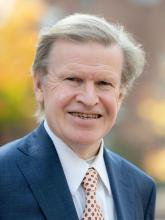You are here
Machiavelli in Euroland
Mar 30,2015 - Last updated at Mar 30,2015
Niccolò Machiavelli is trending.
More than 500 years after writing his famous treatise “The Prince”, Machiavelli has reemerged as one of Europe’s most popular political thinkers.
And, indeed, his book — one of the earliest political “how to” manuals — has some useful advice for economic policy makers at a time when they are facing extraordinarily confusing challenges.
Monetary authorities have turned to Machiavelli to help them understand European Central Bank President Mario Draghi’s policy approach.
France’s new economy minister, Emmanuel Macron, is likely using Machiavelli’s ideas — on which he wrote his master’s thesis — to help shape his plan to modernise his country’s economy.
An influential Moscow think tank called Niccolo M. advises the Kremlin on policies like offensive military communication technologies and hybrid warfare.
But Machiavelli is poorly understood.
The most notorious chapter of “The Prince”, Chapter XVIII, which explains the circumstances in which it is permissible — and even desirable — for rulers to break promises, appears to argue that the most successful rulers think “little about keeping faith” and know “how cunningly to manipulate men’s minds”.
The chapter has been widely interpreted to mean that leaders should lie as often as possible.
Machiavelli’s message, however, was more complex. With an expert analysis of the wider implications of deception and “spinning” the truth, he demonstrates that manipulation can work only if the ruler can convincingly pretend not to be engaging in it.
In short, leaders must cultivate a reputation for being dependable and sincere — a lesson that Russian President Vladimir Putin clearly never took on board.
Democratic politics and modern policy making are based on promises.
Political parties and candidates use promises to woo voters, and then to win support for policies. People will not respond to implausible pledges, especially if the politicians making them seem unreliable.
A variation of this conundrum emerges in monetary policy making.
In the jargon of modern monetary technocrats, the issue is how to “anchor expectations”.
Forward guidance (a promise about future interest rates) is not effective when policy makers have to admit that circumstances may force them to change their minds — and their policies — without warning.
Machiavelli saw a need for the appearance of consistency, with officials projecting the virtues that would underpin that image, thereby creating a solid foundation for effective policies.
“To those seeing and hearing him, the ruler should appear to be all mercy, all faithfulness, all integrity, all humanity and all religion. And there is nothing more necessary than to seem to possess this last quality.”
In other words, politicians should never seem — much less say — that they do not believe in anything.
Yet modern politics tends to begin with pragmatism and proceed to broken promises.
Europe likes to style itself as a postmodern construct, but one of the features of postmodernism is the reduction of political life to the playing out of cosmetically charged narratives or the convening of constantly changing focus groups.
The malleability of postmodern politics stands in stark contrast to the resoluteness that prevailed under Winston Churchill, Konrad Adenauer, Charles de Gaulle, Alcide de Gasperi and even Jacques Delors.
The perception that fundamental convictions guided these leaders is what enabled them to engage in political trickery effectively.
Of course, the politics of conviction cannot thrive on words alone. The only way to be consistently and deeply Machiavellian is to take action to build and maintain the right reputation.
This lesson could be key for European leaders today, at a time when so many are groping for a sense of what being European really means.
The notion that, at its core, Europe should be focused on something as mundane as tweaking fiscal rules seems disappointing, to say the least — especially as the continent confronts an intensifying humanitarian crisis, caused by the influx of refugees from war-ravaged countries like Libya and Syria.
With Daesh threatening to drive an ever-increasing number of such refugees to Europe, and the crisis in Ukraine likely to add to the human flood, Europeans are feeling pressure to think beyond the fiscal challenges they face.
That pressure is all the more intense, given that the countries most affected by this humanitarian challenge — Greece, Italy and Spain — also incurred the most damage from the financial crisis.
It is time for European leaders to step up, showing the kind of conviction that Machiavelli would have promoted, to end the humanitarian crisis.
First, they must ease the suffering of refugees by including or integrating them in a constructive way.
Such an effort would demand substantial financial injections into the countries on the front line of the crisis.
If handled correctly, the refugees could become a badly needed source of dynamism for weak economies and a solution to the problem of population ageing.
At the same time, Europe’s leaders must work to curb the influx of refugees, by developing a political programme to end the violence that is driving despairing people by the millions to their countries’ borders.
Europe cannot afford to be an island of relative stability in a sea of chaos.
Probably the best way to make Europe credible is to stake out a position that is genuinely bold, one that both advances its interests and upholds its deeper values.
Machiavelli’s metaphor for the mystery of effective political conduct provides a potent template. Europe needs to be both a fox and a lion.
The writer is professor of history and international affairs at Princeton University, professor of history at the European University Institute, Florence, and a senior fellow at the Centre for International Governance Innovation. ©Project Syndicate, 2015. www.project-syndicate.org












